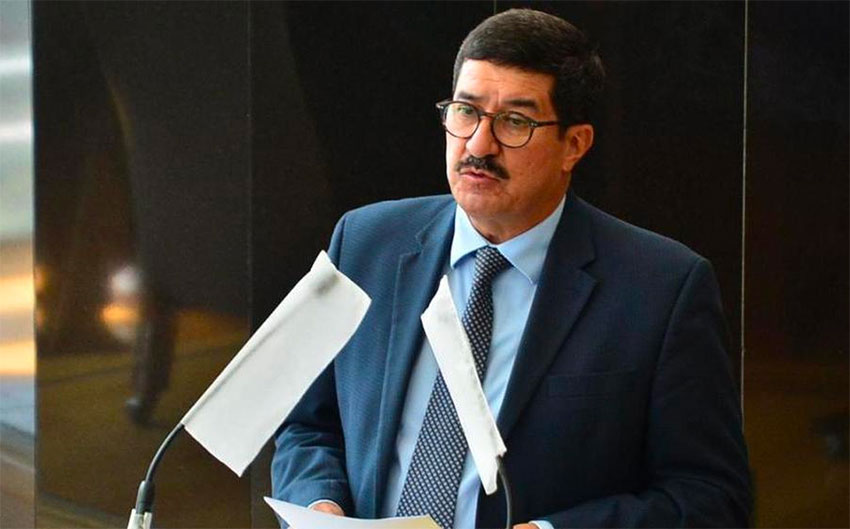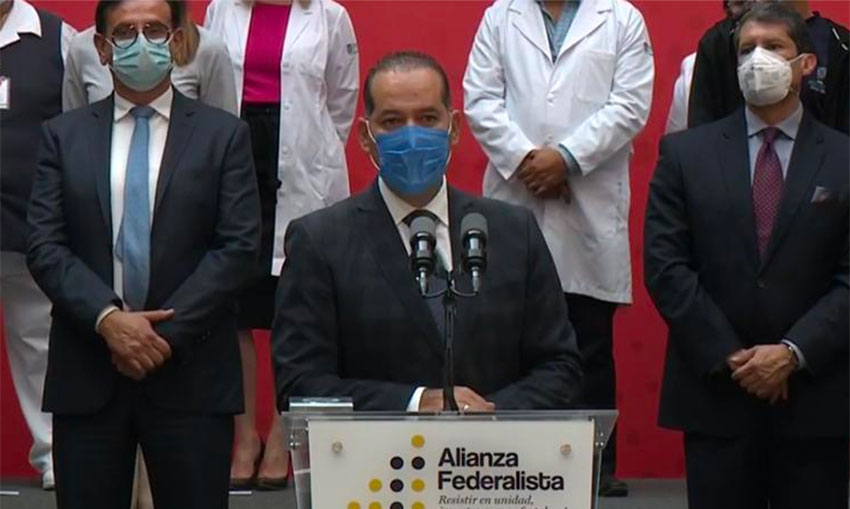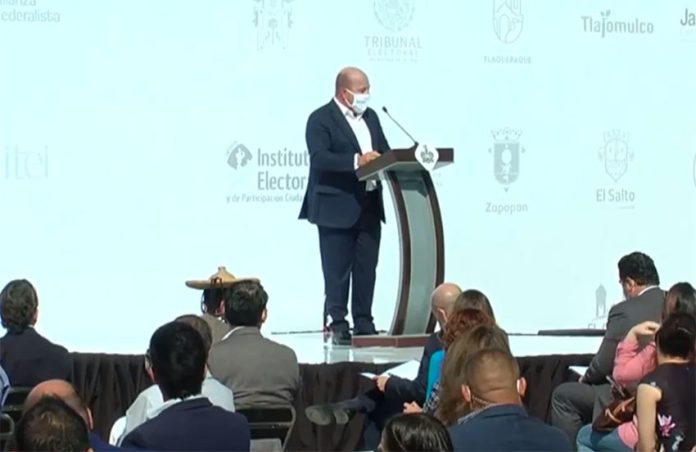Ten governors held simultaneous events on Monday to demand that the federal government provide more funding to their states and to denounce the abolition of 109 public trusts.
Attended by businesspeople, municipal government officials, members of civil society organizations and others, the events took place in the 10 states led by the governors of the Federalist Alliance, a group that has called President López Obrador a threat to democracy and which is aiming to be a counterbalance to what they see as his attempt to concentrate power in the federal government.
The 10 governors are from Chihuahua, Jalisco, Nuevo León, Durango, Guanajuato, Tamaulipas, Coahuila, Colima, Michoacán and Aguascalientes.
The simultaneous protest events came seven weeks after the federal government revealed in its 2021 budget that it intends to cut funding for Mexico’s 32 states by 5.5% next year and less than a week after the Senate voted in favor of abolishing 109 public trusts.
The dissident governors threatened to withdraw from the federal pact – an agreement that binds the states together and is supposed to guarantee them fair and equitable federal funding while granting them political sovereignty and autonomy – if the federal government doesn’t meet their funding demands and continue to provide adequate resources to the areas financed by the abolished trusts.

The alliance governors have already withdrawn from the National Conference of Governors, an organization that provides a forum for discussions between state and federal leaders.
Chihuahua Governor Javier Corral said Monday that the Federalist Alliance is ready for a political and legal battle against the federal government over funding, adding that the group could seek intervention from international authorities.
“We’re not going to allow abuse or the trampling [of our rights],” he said.
“If the response [to our demands] continues to be indifference and deaf ears, we’re ready to take up a political and legal battle. If [the federal government] doesn’t listen to our states, it could mark the beginning of the rupture of the federal pact.”
At an event in Guadalajara, Jalisco Governor Enrique Alfaro and representatives from a range of economic sectors denounced the abolition of the public trusts and the federal government’s decision to slash the state’s 2021 funding by 9.2 billion pesos (US $438.9 million).
“We’re here leaving behind our party colors and agendas; we’re putting our differences to one side for a purpose that unites us – defending Jalisco,” the governor said.
“No free and sovereign state that has a minimum of dignity can continue to be part of a federation when the government of the republic ignores us, attacks us, insults us and takes away what belongs to us.”
Alfaro also took aim at López Obrador for dividing the nation and preventing the possibility of reconciliation with the dissident states by labelling those who don’t agree with him as “corrupt” or “conservative.”
He said that the silence of some states in the face of the president’s attacks legitimizes the federal government’s growing centralism.
(The government has installed “super-delegates” in states to oversee the distribution of federal funds.)
Alfaro said the 8% reduction in federal funding in Jalisco will place priority infrastructure projects at risk, take money away from municipal governments, crush the state’s environmental agenda, hurt the health system and undermine scientific and technological work.
He said that he and the other disgruntled governors are willing to enter into discussions with the federal government with a view to reaching an agreement on funding but added that they are also ready to launch a legal and political battle “if it’s necessary.”

Nuevo León Governor Jaime Rodríguez said that states’ ability to invest in public transit, education, highways and healthcare will be undermined by the federal government’s funding cuts. At the same time, unemployment and poverty will increase, he charged.
The governors of Durango, Guanajuato, Tamaulipas, Coahuila, Colima, Michoacán and Aguascalientes presented similar arguments against the federal government’s cuts.
Martín Orozco of Aguascalientes said there is a “determination” on the part of the federal government to “destroy the federal system” and replace it with “absolute power,” charging that the Congress – in which the ruling party has a majority in both houses – has become a rubber stamp for the executive.
He described the abolition of the public trusts as an authoritarian decision that goes against the democratic spirt upon which the nation was forged.
“From Baja California to Yucatán, all Mexicans are fighting for their most legitimate needs. The [federal] lawmakers are there to defend the rights of the citizens, not the interests of a party. [The abolition of the trusts] affects research, science, sports, art and culture. It weakens the fight against poverty and people’s quality of life,” Orozco said.
Source: Reforma (sp), El Universal (sp), La Razón (sp)
